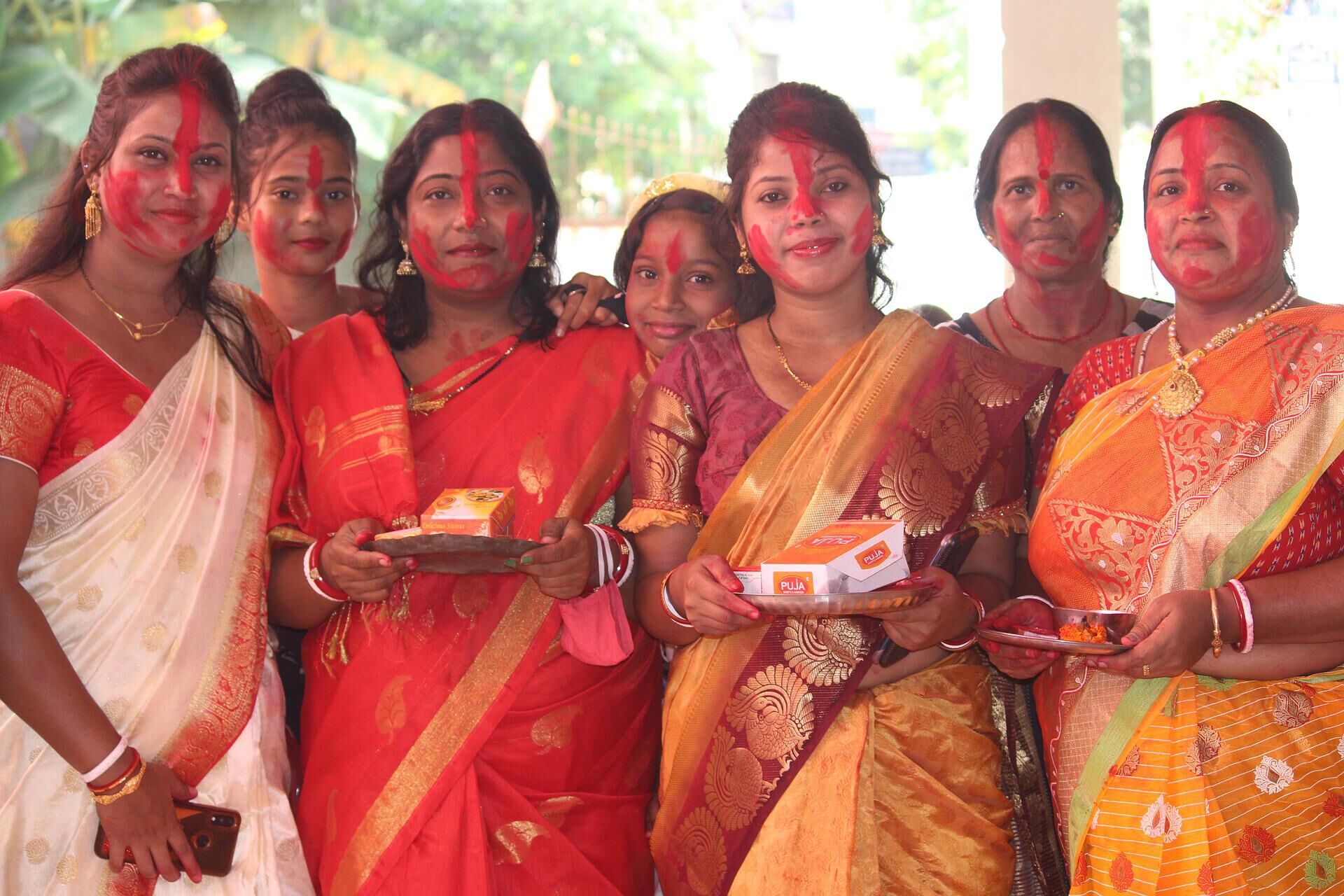Dreadful vermillion!
Exclusion of widows and others from Sindoor Khela is an unjustifiable, dreary practice that doesn’t deserve acceptance in modern society

It's said that a lot of our triggers can be traced back to our childhood. My sindoor phobia certainly can.
My aversion to the vermillion powder that married women apply in the parting of their hair developed the year I turned eight. One day I saw my young, widowed mother skulk from the neighbourhood Durga Puja pandal just before Sindoor Khela was about to begin.
Sindoor Khela is a ritual observed on the last day of the puja. Married Bengali women apply sindoor on Goddess Durga and offer sweets as a way of bidding her farewell. Once that is done, they apply sindoor and offer sweets to one another. A ritual celebrated with much pomp and gaiety in Bengal as well as other parts of the country and abroad.
Eight-year-old me was indignant. Why can't you stay and play with the red powder like the other ladies? I demanded. With a wan look on her face, she explained that since Baba had died and she was a widow, she couldn't apply the red powder on herself or anyone else. In fact it would be unlucky for the others if she was around.
If I could put a timestamp, it was on that day that I developed a dislike for the offensive red powder and the ritual that had turned my mother into an outsider in the blink of an eye. To a child, it felt as though the others were flaunting something my mother didn't have – a husband, a sense of belonging? I remember walking back home with her that day, sounds of merriment fading into the distance. Each time I see pictures of women smearing one another with sindoor, I am transported back to that day and the humiliation I felt.
When I grew up and discovered what the red powder really meant in the general scheme of things, my distrust deepened. A powder to mark someone's ownership of me was not acceptable. Besides, the mercury content in the powder was dangerous; not to mention how messy it looked. Sartorially, it didn't fit with my persona either. Sindoor and frayed denims? There was no way we were compatible.
When my future ma-in-law pleaded for me to smear just a wee bit for my wedding ceremony, I agreed — albeit reluctantly. But only because I hate scenes and my in-laws were/are genuinely nice people. But the next morning it was gone. And it's been two decades since I've gone anywhere near vermillion powder.
There have been plenty of curious stares and nasty jibes thrown my way over the years but I'm immune to all of it. I refuse to wear anything that binds me down in any way. The husband doesn't care either. Both of us don't believe in tokens or symbols. Birds of a feather and all that. And those that do care don't matter in my scheme of things
I'm also acutely aware of my privilege when I write this. It's a choice I can afford to make. But not many others can. I had a cook once who wore a sindoor (even though husband had dumped her and was living with another woman). Why do you wear it? I had asked her. I don't want to, she had said. But it keeps me safe. Men keep their distance. She, unfortunately, didn't have a choice.
I baulk at the idea of anything exclusionary, and Sindoor Khela is a case in point. Besides, women themselves need to be aware of what they endorse. While things are certainly changing, and singles and widows – even men — are participating in the ritual these days, it is more of an exception. Till the time it becomes a norm and women are given a better place in society, I will respectfully stay away.
Views expressed are personal



